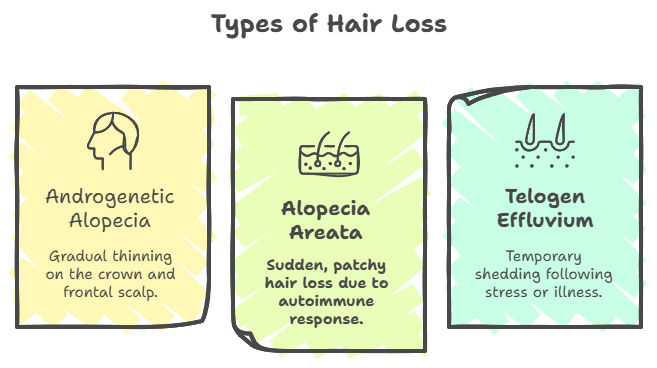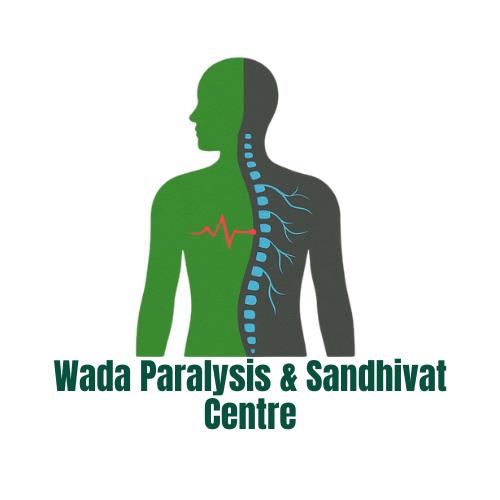Hair Loss Solutions: Comprehensive Guide to Treatment and Prevention
Hair loss affects millions worldwide, impacting self-esteem and quality of life. Whether due to genetics, hormonal changes, or lifestyle factors, understanding the causes and exploring effective treatments is crucial. This guide delves into the latest medical advancements, natural remedies, and preventive strategies to combat hair loss.

Understanding Hair Loss
What Causes Hair Loss?
Hair loss, or alopecia, can result from various factors:
- Genetic Predisposition: Androgenetic alopecia, commonly known as male or female pattern baldness, is hereditary and the most prevalent cause.
- Hormonal Imbalances: Conditions like thyroid disorders or hormonal changes during pregnancy and menopause can lead to hair thinning.
- Medical Conditions: Autoimmune diseases such as alopecia areata, scalp infections, and certain medications can contribute to hair loss.
- Nutritional Deficiencies: Lack of essential nutrients like iron, protein, and vitamins can weaken hair follicles.
- Stress and Lifestyle: High stress levels, poor diet, and inadequate hair care practices can exacerbate hair shedding.
Identifying the Type of Hair Loss
Recognizing the specific type of hair loss is vital for effective treatment:
- Androgenetic Alopecia: Gradual thinning on the crown and frontal scalp.
- Alopecia Areata: Sudden, patchy hair loss due to autoimmune response.
- Telogen Effluvium: Temporary shedding following stress or illness.
- Traction Alopecia: Hair loss from tight hairstyles pulling on the scalp.

Medical Treatments for Hair Loss
FDA-Approved Medications
- Minoxidil: A topical solution that stimulates hair growth by prolonging the growth phase of hair follicles.
- Finasteride: An oral medication that inhibits the hormone responsible for hair follicle shrinkage, effective in men.
Advanced Therapies
- Platelet-Rich Plasma (PRP) Therapy: Involves injecting concentrated platelets from the patient’s blood into the scalp to promote hair growth.
- Low-Level Laser Therapy (LLLT): Uses red light to stimulate hair follicles and increase hair density.
- Stem Cell Treatments: Emerging research suggests stem cell therapy may regenerate hair follicles and promote growth.
Surgical Options
Hair Transplant Procedures
- Follicular Unit Transplantation (FUT): Involves removing a strip of scalp and transplanting hair follicles to balding areas.
- Follicular Unit Extraction (FUE): Individual hair follicles are extracted and implanted, leaving minimal scarring.
While effective, surgical options carry risks such as scarring, infection, and unnatural hairlines. Consulting with a qualified specialist is essential.
Natural and Lifestyle Remedies
Dietary and Nutritional Support
A balanced diet rich in proteins, vitamins, and minerals supports hair health:
- Biotin: Found in eggs, nuts, and whole grains, strengthens hair strands.
- Iron: Essential for oxygenating hair follicles; sources include red meat and leafy greens.
- Omega-3 Fatty Acids: Present in fatty fish and flaxseeds, promote scalp health.
Home Remedies and Practices
- Scalp Massages: Enhance blood circulation to hair follicles.
- Essential Oils: Rosemary and peppermint oils have shown potential in stimulating hair growth.
- Avoiding Harsh Treatments: Limiting heat styling and chemical treatments prevents hair damage.
Preventive Measures
Daily Habits for Healthy Hair
- Gentle Hair Care: Use mild shampoos and avoid excessive brushing.
- Protective Hairstyles: Avoid tight hairstyles that strain hair follicles.
- Stress Management: Practices like meditation and regular exercise can reduce stress.
- Regular Check-Ups: Monitoring health conditions that may contribute to hair loss ensures early intervention.
Conclusion
Hair loss can be distressing, but numerous solutions are available. From medical treatments and surgical options to natural remedies and preventive strategies, individuals can find effective ways to combat . Consulting with healthcare professionals and adopting a holistic approach tailored to individual needs can lead to healthier, fuller hair.
FAQs
- Q1: Can hair loss be reversed naturally?
While natural remedies can improve hair health and reduce shedding, reversing significant thinning typically requires medical treatments. - Q2: How effective are over-the-counter treatments for hair loss?
Products like minoxidil have shown effectiveness in promoting hair growth, especially when used consistently. - Q3: What are the risks associated with hair transplant surgeries?
Potential risks include scarring, infection, and unnatural hair appearance. Choosing an experienced surgeon minimizes these risks. - Q4: How long does it take to see results from hair loss treatments?
Results vary; some may notice improvements within a few months, while others may take longer. Consistency is key. - Q5: Are there any side effects of using topical hair growth products?
Some users may experience scalp irritation or unwanted hair growth in adjacent areas. It’s important to follow usage instructions and consult a healthcare provider if concerns arise.



